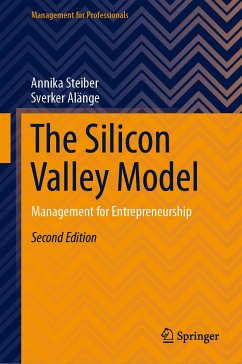New material, appearing mainly in the "Recent Developments" sections in each chapter, includes both real-life events and new research findings related to the management principles for entrepreneurship. In some cases, elements of innovation and development of the Silicon Valley Model have taken new forms in response to changing times or the desires of the companies involved. The Silicon Valley Model, Second Edition is beneficial to executives from the board and CEO level on down, consultants, researchers, and others who study or work with new developments in management.
Dieser Download kann aus rechtlichen Gründen nur mit Rechnungsadresse in A, B, BG, CY, CZ, D, DK, EW, E, FIN, F, GR, HR, H, IRL, I, LT, L, LR, M, NL, PL, P, R, S, SLO, SK ausgeliefert werden.









